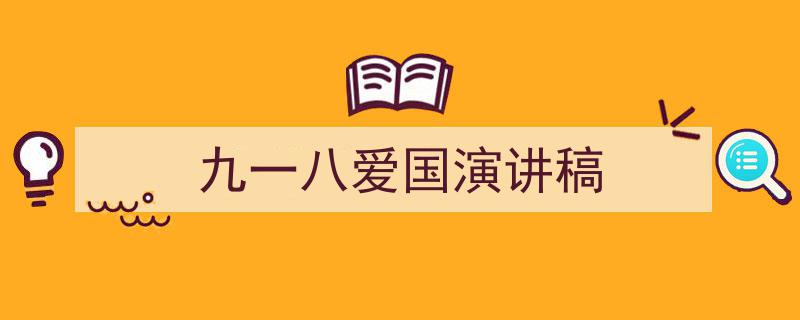欢迎来到58原创网网
格策美文教你学写《英语不规则过去式小学》小技巧(精选5篇)
更新日期:2025-08-04 20:45

写作核心提示:
这是一篇关于英语不规则过去式小学作文应该注意哪些事项的小学作文:
"学习不规则过去式的小小心得"
大家好!我们学英语的时候,学到了动词。很多动词变过去式的时候,是把字母“e”加在后面,比如“play”变成“played”。但是,也有一些动词很调皮,它们变过去式的时候不按常理出牌,需要我们特别记住。这些就是“不规则过去式动词”。今天,我想跟大家分享一下,写关于不规则过去式的作文时,我们的小脑袋里应该装些什么。
首先,"一定要记住,要写动词!" 作文不是只写句子,而是要表达意思。如果我们想表达过去发生的事情,就要用到动词的过去式。对于不规则动词,我们更要记住它们过去式的样子,不能写错哦!比如,我们想说“我跑”了,就不能写“I run”,而是要写“I ran”。
其次,"要把动词用对时态!" 我们现在谈论的是过去的事情,所以我们的句子大部分都应该用过去时态。比如,“昨天我吃了苹果” (I ate an apple yesterday),这里的“ate”就是动词“eat”的不规则过去式。如果写成了现在时态“I eat”,那就表示我们现在在吃苹果,和题目要求的不一样了。
第三,"注意主语和动词的搭配!" 动词的过去式形式要看主语是不是“我”(I)、
小学英语80个不规则动词过去式
小学六年级英语一般过去时不规则动词用法详解及双语例句
小学六年级英语一般过去时不规则动词用法详解
一般过去时表示过去某个时间发生的动作或存在的状态 ,其中不规则动词的过去式变化没有固定规律,需要特别记忆。下面为你详细讲解并附上双语例句:
一、常见不规则动词过去式变化分类及用法详解
1. be动词:am/is的过去式是was ,are的过去式是were 。用于描述过去的状态或存在。
- I was at home yesterday.(我昨天在家。)
- She was happy last weekend.(她上周末很开心。)
- They were students ten years ago.(他们十年前是学生。)
- We were in the park this morning.(我们今天早上在公园。)
- The book was on the desk just now.(那本书刚才在桌子上。)
2. have/has:过去式为had,表示“有;吃;经历”等含义。
- I had a big breakfast this morning.(我今天早上吃了一顿丰盛的早餐。)
- She had a new bike last year.(她去年有一辆新自行车。)
- They had a good time at the party last night.(他们昨晚在派对上玩得很开心。)
- We had an English class yesterday afternoon.(我们昨天下午上了一节英语课。)
- He had a headache yesterday.(他昨天头疼。)
3. go:过去式是went ,表示“去”。
- I went to the zoo last Sunday.(我上周日去了动物园。)
- She went shopping with her mother yesterday.(她昨天和妈妈去购物了。)
- They went to the cinema last night.(他们昨晚去看电影了。)
- We went to the mountains last summer.(我们去年夏天去爬山了。)
- He went to school by bike this morning.(他今天早上骑自行车去上学。)
4. do/does:过去式为did ,用于构成一般过去时的疑问句和否定句,也可表示“做”的动作。
- Did you do your homework last night?(你昨晚做作业了吗?)
- She didn't do any housework yesterday.(她昨天没做任何家务。)
- What did they do last weekend?(他们上周末做什么了?)
- We did some reading yesterday evening.(我们昨天晚上读了些书。)
- He did his best in the exam.(他在考试中尽了最大努力。)
5. come:过去式是came ,表示“来”。
- My friend came to see me yesterday.(我的朋友昨天来看我了。)
- She came to school late this morning.(她今天早上上学迟到了。)
- They came back home late last night.(他们昨晚很晚才回家。)
- The guests came to the party on time.(客人们准时来参加派对了。)
- I came across an old friend in the street yesterday.(我昨天在街上偶然遇到了一位老朋友。)
6. see:过去式是saw ,表示“看见”。
- I saw a beautiful bird in the tree this morning.(我今天早上在树上看到了一只漂亮的鸟。)
- She saw a movie last night.(她昨晚看了一场电影。)
- They saw their teacher in the park yesterday.(他们昨天在公园看到了他们的老师。)
- We saw many interesting things at the museum.(我们在博物馆看到了许多有趣的东西。)
- He saw a car accident on his way to work.(他在上班路上看到了一场车祸。)
7. eat:过去式是ate ,表示“吃”。
- I ate an apple for breakfast this morning.(我今天早上早餐吃了一个苹果。)
- She ate some noodles for lunch yesterday.(她昨天午餐吃了一些面条。)
- They ate hamburgers for dinner last night.(他们昨晚晚餐吃了汉堡包。)
- We ate delicious food at the restaurant.(我们在餐馆吃了美味的食物。)
- He ate too much ice - cream and felt sick.(他吃了太多冰淇淋,感觉不舒服。)
8. drink:过去式是drank ,表示“喝”。
- I drank a glass of milk before going to bed last night.(我昨晚睡觉前喝了一杯牛奶。)
- She drank some tea this afternoon.(她今天下午喝了一些茶。)
- They drank orange juice at the party.(他们在派对上喝了橙汁。)
- We drank water after playing basketball.(我们打篮球后喝了水。)
- He drank too much wine and couldn't walk straight.(他喝了太多酒,走不稳路。)
9. run:过去式是ran ,表示“跑”。
- I ran to the bus stop this morning to catch the bus.(我今天早上跑到公交车站去赶公交车。)
- She ran very fast in the race yesterday.(她昨天在比赛中跑得很快。)
- They ran around the playground for ten minutes.(他们绕着操场跑了十分钟。)
- We ran to school because we were late.(我们跑去学校,因为我们迟到了。)
- He ran away when he saw the dog.(他看到狗就跑开了。)
10. swim:过去式是swam ,表示“游泳”。
- I swam in the pool last summer.(我去年夏天在游泳池里游泳了。)
- She swam across the river yesterday.(她昨天游过了河。)
- They swam for an hour this afternoon.(他们今天下午游了一个小时。)
- We swam in the sea during our vacation.(我们度假时在海里游泳。)
- He swam well and won the first prize.(他游得很好,赢得了一等奖。)
11. begin:过去式是began ,表示“开始”。
- The movie began at 7:00 last night.(电影昨晚七点开始。)
- She began to do her homework after dinner.(她晚饭后开始做作业。)
- They began the meeting with a song.(他们以一首歌开始了会议。)
- We began to learn English when we were in Grade Three.(我们三年级时开始学英语。)
- He began his speech with a funny story.(他以一个有趣的故事开始了他的演讲。)
12. sing:过去式是sang ,表示“唱歌”。
- I sang a song at the party last week.(我上周在派对上唱了一首歌。)
- She sang beautifully in the concert yesterday.(她昨天在音乐会上唱得很动听。)
- They sang many popular songs together.(他们一起唱了许多流行歌曲。)
- We sang loudly on our way home.(我们在回家的路上大声唱歌。)
- He sang his favorite song to his mother.(他给他妈妈唱了他最喜欢的歌。)
13. take:过去式是took ,表示“拿;带走;花费(时间)”等。
- I took my umbrella with me this morning because it was raining.(今天早上下雨,我带了雨伞。)
- She took a lot of photos during her trip.(她在旅行中拍了很多照片。)
- They took the bus to the park yesterday.(他们昨天乘公共汽车去了公园。)
- It took us two hours to finish the work.(我们花了两个小时完成这项工作。)
- He took some money from his wallet to buy a book.(他从钱包里拿出一些钱买了一本书。)
14. write:过去式是wrote ,表示“写”。
- I wrote a letter to my pen pal last night.(我昨晚给我的笔友写了一封信。)
- She wrote a story for the school magazine.(她为学校杂志写了一个故事。)
- They wrote down their names on the paper.(他们把名字写在了纸上。)
- We wrote an English composition in class yesterday.(我们昨天在课堂上写了一篇英语作文。)
- He wrote his feelings in his diary.(他在日记里写下了自己的感受。)
15. find:过去式是found ,表示“找到;发现”。
- I found my lost key under the bed this morning.(我今天早上在床底下找到了我丢失的钥匙。)
- She found a beautiful flower in the garden.(她在花园里发现了一朵美丽的花。)
- They found a wallet on the street and gave it to the police.(他们在街上发现了一个钱包,把它交给了警察。)
- We found the book very interesting.(我们发现这本书很有趣。)
- He found it difficult to solve the problem.(他发现解决这个问题很难。)
16. give:过去式是gave ,表示“给”。
- I gave my mother a gift on Mother's Day.(母亲节我给了妈妈一份礼物。)
- She gave me a piece of advice.(她给了我一条建议。)
- They gave some food to the poor people.(他们给了穷人一些食物。)
- We gave our teacher a big surprise on Teachers' Day.(教师节我们给了老师一个大惊喜。)
- He gave his seat to an old woman on the bus.(他在公共汽车上把座位让给了一位老妇人。)
17. get:过去式是got ,表示“得到;到达;变得”等。
- I got a present from my father on my birthday.(我生日时收到了爸爸的一份礼物。)
- She got to school early this morning.(她今天早上很早就到学校了。)
- They got tired after a long walk.(他们走了很长一段路后累了。)
- We got good grades in the exam.(我们在考试中取得了好成绩。)
- He got angry when he heard the bad news.(他听到这个坏消息时很生气。)
18. make:过去式是made ,表示“制作;使”。
- I made a model plane yesterday.(我昨天做了一个模型飞机。)
- She made a cake for her brother's birthday.(她为弟弟的生日做了一个蛋糕。)
- They made the room clean and tidy.(他们把房间收拾得干净整洁。)
- We made a plan for the weekend.(我们为周末制定了一个计划。)
- His words made me happy.(他的话使我很高兴。)
19. read:过去式读音为/red/,但拼写还是read ,表示“读”。
- I read an interesting book last week.(我上周读了一本有趣的书。)
- She read the newspaper every morning last year.(她去年每天早上都看报纸。)
- They read the story aloud to the children.(他们大声给孩子们读这个故事。)
- We read some poems in class yesterday.(我们昨天在课堂上读了一些诗歌。)
- He read his favorite novel again and again.(他一遍又一遍地读他最喜欢的小说。)
20. put:过去式和原形一样是put ,表示“放”。
- I put my bag on the desk when I came into the classroom.(我走进教室时把包放在了桌子上。)
- She put the flowers in the vase.(她把花插进了花瓶里。)
- They put the toys into the box.(他们把玩具放进了盒子里。)
- We put up the pictures on the wall.(我们把画挂在了墙上。)
- He put on his coat and went out.(他穿上外套出去了。)
二、总结
不规则动词的过去式需要同学们多读、多写、多练,通过不断的记忆和运用来掌握 。在使用一般过去时的时候,要注意句子中的时间状语是否是过去的时间,确保动词形式的正确使用 。希望以上内容对你学习一般过去时不规则动词有所帮助!
文章说明
本站部分资源搜集整理于互联网或者网友提供,仅供学习与交流使用,如果不小心侵犯到你的权益,请及时联系我们删除该资源。






